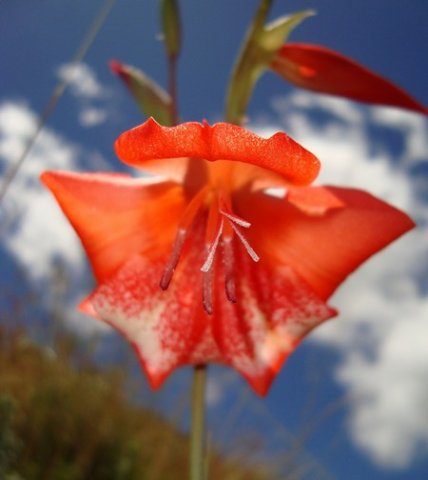Gladiolus saundersii style branches

Author: Ivan Lätti
Photographer: Judd Kirkel Welwitch
The three whitish branches at the tip of this Gladiolus saundersii style widen to abruptly truncated tips. Of the same length, the white surfaces suggest stigma areas that may be sticky and increased in size from the widening.
Small white regions in large scarlet corollas serve to guide insects to the vital spots where the pollen receptive cells reside. Once the stigmas on the style are receptive, the anthers beside them have already finished delivering their pollen, hopefully transported to other flowers by the dedicated agents and avoiding self-pollination.
In the case of G. saundersii flowers these agents are probably the large Aeropetes tulbaghia butterflies found in many parts of South Africa (Pooley, et al, 2025; Manning, 2009; Goldblatt and Manning, 1998; Pooley, 1998; Trauseld, 1969; iNaturalist).

